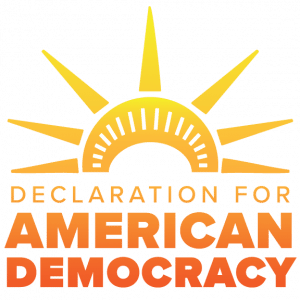This Week in 200 Words
This week, Los Angeles is experimenting with voting machines, portraying the trade-offs between security and accessibility. Election officials in Kentucky, Louisiana and Connecticut are asking for more resources so they can provide adequate election security, and a federal judge ordered Georgia to get rid of outdated electronic voting machines before the 2020 election. On campaign financing, New York held the first meeting of its public finance commission, and Seattle is seeking to pass tighter campaign finance regulations.
In other news, Politico held a great Q&A with cybersecurity pros, including an expert whose team once hacked into an internet voting system in 48 hours, highlighting the likelihood of a voting security crisis in 2020 if officials don’t act now.
National News
The Fulcrum: Reform groups ask DNC to hold debate on plans to fix the political system
Eighteen groups promoting democracy reform sent a letter Tuesday to Tom Perez, chairman of the Democratic National Committee, asking for a presidential debate focused on the candidates’ democracy reform plans. “Whether it comes to addressing our climate crisis, lowering the cost of prescription drugs, ending gun violence, or any other issue Democratic candidates have been talking about on the campaign trail, the role of a healthy democracy in achieving those ends is undeniable,” the letter states.
The Hill: State officials beg Congress for more election security funding
The secretaries of state for Connecticut and Louisiana on Thursday called on Congress to appropriate more funding to boost election security heading into 2020. Speaking at a forum hosted by the Election Assistance Commission (EAC), Louisiana Secretary of State Kyle Ardoin (R) and Connecticut Secretary of State Denise Merrill (D) said additional federal funding is the best way Congress can help states shore up election security and ward off cyberattacks.
Paperless voting machines are just waiting to be hacked in 2020. And “upgrading” to paper-based voting machines may sound like an oxymoron, but it’s something cybersecurity experts are urging election officials across the country to do. A POLITICO survey found that in 2018, hundreds of counties in 14 states used paperless voting machines — and almost half of the counties that responded to the survey said they don’t plan on changing that ahead of 2020. Security experts said paperless voting machines are vulnerable to hacking because they leave no paper trail and there’s no way to reliably audit the results when an error occurs.
Politico Magazine: How a Gerrymander Nearly Cost Us the Bill of Rights
When the Supreme Court decided earlier this summer that federal judges cannot interfere if states draw election district boundaries that favor the party in power, Chief Justice John Roberts invoked the Founding Fathers. Even James Madison had been the target of gerrymandering, Roberts wrote in the 5-4 Rucho v. Common Cause decision, using that as evidence to show the founders tolerated this practice and viewed it as an unavoidable part of our political system.
Mercury News: Campaign finance reform is key to ending NRA hold on Congress
In the last three weeks, we’ve witnessed an unfathomable rise in gun violence in this country. More than 100 people were shot and 37 were killed, including two young children in Gilroy. Bodies were riddled with bullets in seconds by high-capacity assault weapons. Because it hits so close to home for us, it has been difficult to think about anything else.
State Updates
Starting in 2020, Los Angeles County’s 5.2 million voters will cast their ballots on new machines that the county had custom built over a decade to be highly accessible to citizens with all manner of disabilities and who speak 13 languages. The new machines mark the biggest challenge in years to the highly consolidated voting machine industry in the United States, in which just three companies control more than 90 percent of the market.
A top Kentucky election official said Thursday that counties there are “severely under resourced,” affecting their abilities to provide adequate cybersecurity. “Most of us cannot compel our local election jurisdictions to update their equipment,” said Jared Dearing, executive director of the Kentucky State Board of Elections, before an Elections Assistance Commission panel in Silver Spring.
Georgia-NPR: Judge Says Georgia Must Scrap Outdated Electronic Voting Machines After 2019
A federal judge has denied a request to move all of this fall’s municipal elections in Georgia away from “unsecure, unreliable and grossly outdated technology” and toward hand-marked paper ballots that are optically scanned and counted. The order from U.S. District Court Judge Amy Totenberg Thursday also requires the state to cease using its direct-recording electronic voting machines after 2019 and expresses doubts about the state’s ability to roll out its new ballot-marking device system in time for the March 24, 2020, presidential primary election.
Around 4,000 Ohioans may be on the brink of being illegally purged from state voting rolls, voting-rights advocates said Thursday. Representatives of groups including the League of Women Voters and the NAACP called on Secretary of State Frank LaRose, the state’s top elections official, to delay a scheduled Sept. 6 purge of 235,000 voters from the rolls.
New York-WBFO: State Public Finance Commission holds first meeting Wednesday
The first meeting of the commission created to devise a public campaign finance system for New York’s political races is scheduled for Wednesday. Advocates hope the commission, which has been slow to start, will start taking steps toward a final report due in December. The commission, announced in March, does not yet have a staff or a schedule of promised public hearings, but advocates for public campaign financing in New York say they hope that will be announced at the meeting.
Washington-The Fulcrum: Tighter campaign finance curbs start moving in Seattle
Having successfully implemented the nation’s first voucher-based system for public funding of campaigns, Seattle is looking at another way to limit big money’s influence on local elections. The city’s ethics and elections commission started considering legislation Tuesday that would prohibit corporations owned or operated to a significant degree by foreign entities from spending to influence municipal elections. The bill would also significantly limit how much in “independent expenditures” any business interest could direct toward local races — effectively doing away with super PACs in Seattle.
Wisconsin-New York Times: In the War Against Gerrymandering, an Army of Voters Meets a Dug-in Foe
When the Supreme Court concluded this summer that it had no authority to strike down partisan political maps, no matter how outrageous, Chief Justice John G. Roberts offered solace to those who call the maps dangerous to democracy. Maybe federal judges cannot outlaw gerrymanders, he wrote in the court’s majority opinion. But voters surely could.

